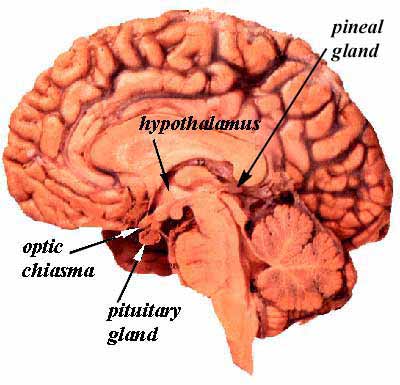
Menopause Symptom (medicalhealthadvice.org)
New research is unveiling previously unknown benefits behind the most common symptoms of menopause such as fiery hot flashes.
It was discovered that the uncomfortable rushes of warmth (hot flashes), may actually reduce a woman’s risk of developing breast cancer by up to 50 percent, as researchers at Seattle’s Fred Hutchinson Cancer Research Center conducted their study.
Scientists published their results on the online journal named Cancer Epidemiology Biomarkers and Prevention, under the January 26 edition.
Dr. Christopher I.Li, lead author, said that they were aware of the role hormones played in calculating breast cancer risk, also, they knew the kind of hormonal changes women went through as they advanced through menopause. Dr. Li went on to state that, were their findings conclusive, it would represent a glimmer of hope for women experiencing menopausal symptoms, as these often affect their quality of life.
The study was performed on a group of 1,437 postmenopausal women, of whom 988 had been diagnosed as having breast cancer. They were queried on various points including night-sweats, hot flashes, insomnia, vaginal dryness, heavy menstrual bleeding and depression or anxiety. The women’s ages ranged between 55 and 74.
Compared to women with no menopausal symptoms, the researchers found that women experiencing hot flashes had, on average, a 50 percent lower risk of developing the most common type of breast cancer: invasive ductal and lobular carcinomas. Ironically, the women who suffered from the most severe hot flashes (the kind that woke some women up in the night) had the lowest risk of breast cancer.
Dr. Li commented on these results, stating that, although they weren’t planning on inducing menstrual symptoms to lower the risk of breast cancer, finding the underlying cause of the symptoms would therefore lead them to a new, better understanding, that in turn would help create better prevention strategies.
The results held firm as they were tested against existing knowledge in the realm of hormone treatments for women who suffered from breast cancer. for example, it was found to be true (taking into account such variables as weight) after being compared to another major study performed in the U.S, in which Hormone Replacement Treatment was stopped after it was discovered that treating women with estrogen and progestin hormones greatly increased their risk of developing cancer, as well as intensifying menopausal symptoms. Because these two hormones were found to play a big role in the development of breast cancer, Dr. Li noted that reducing the levels of these could help prevent the disease. Dr. Li also said that treatment based on hormones alone would not be effective in fighting cancer, also, more research was needed before hormonal treatment could be widely used.
In the United States alone, breast cancer is the second biggest cause of death among cancer sufferers, claiming almost 500,000 lives every year. many aspects of the disease are not subject to prevention, factors such as genetics or race, although regular screening after the age of 40 is a crucial step in catching the disease in its infancy. Also, it’s been concluded, that simple dietary changes, such as adding a few tablespoons of olive oil to daily cooking, can reduce the risk of all types of cancer by a great deal. Read this article to find out more about olive oil benefits.
Finally, if you are experiencing menopausal symptoms, such as hot flashes, don’t worry. The silver lining of this cloud could be your “partial immunity” to breast cancer. for more information about menopause, symptoms, medication and home remedies, please visit this link. Additionally, for more news on health, especially the development of new cancer treatments and discoveries, visit Metrolic for daily updates.